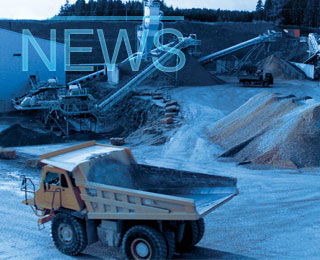The latest UK industry survey from the Mineral Products Association (MPA) shows that volumes of primary aggregates increased by 15.7 per cent YoY in 2021, 14.1 per cent for ready-mixed concrete, 12.5 per cent for asphalt and 24.4 per cent for mortar.
Survey results also show that construction demand remained strong in the final quarter of the year, in spite of unprecedented supply bottlenecks impacting progress on construction sites, cost increases and higher uncertainty due to Omicron. UK sales volumes of aggregates and ready-mixed concrete grew by 3.8 and 5.9 per cent, respectively in 4Q21 compared to the previous quarter. Asphalt and mortar sales recorded small quarterly declines but total demand in volume remains elevated.
“Overall, the recovery in mineral products demand last year has been faster than expected but also imbalanced,” said the MPA. “For instance, aggregates and asphalt sales in 2021 exceeded pre-pandemic levels in 2019 but sales of ready-mixed concrete and mortar remain weaker.”
Asphalt and aggregates demand was supported by an acceleration in infrastructure work, including roads and major infrastructure projects such as High Speed 2 (HS2). Asphalt sales have maintained a historically high level of activity for the past 18 months, with producers working hard to meet pent-up demand from delayed road projects due to the pandemic. That’s in addition to the demand stemming from Government’s Road Investment Strategy 2 and an increase in demand from local authorities for repair and maintenance work.
By contrast, ready-mixed concrete sales in 2021 were 6.7 per cent below 2019 volumes, with demand held back by the comparatively weaker recovery in new commercial tower projects. Mortar sales in 2021 were also lower than in 2019, but a robust pipeline of new housing starts and residential building contracts should support further growth in mortar demand this year.
Outlook
The MPA forecasts aggregates and ready-mixed concrete sales to grow by three per cent YoY in 2022, four per cent for asphalt and 6.5 per cent for mortar. Whilst current growth prospects are inevitably conditional on the timely delivery of the infrastructure pipeline, the mineral products industry is also navigating the wider potential fallout of supply chain bottlenecks on general construction activity and significant cost increases for a wide range of inputs, including energy, wages and carbon.
